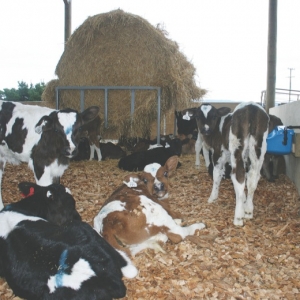It topped a long list of issues put forward for calf rearing guru Bas Schouten to tackle, most of which he answered in a whirlwind session during the three day event.
Schouten stressed “it all starts with colostrum.” Calves need 10% of their bodyweight in colostrum, so a 40kg calf needs 4kg. Studies have shown 80% of calves learn to suckle in their first six hours and if they haven’t done it by then, they won’t, so why leave them in the paddock any longer, he asked delegates.
Most farms check calving paddocks many times every day anyway so take the trailer when you do and pick up calves that are over six hours old while you’re there, he advised.
When they get back to the shed, give them a feed of gold (ie first milking) colostrum, probably by tube, as a matter of routine to ensure all have an adequate intake. “I do recommend tube feeding, particularly with large herds and where there are lots of staff.”
Challenged on whether tube feeding would interfere with the suckling reflex, Schouten countered that a cold wet calf won’t suckle anyway. “Get one or two litres of hot colostrum into them and they’ll be bouncing by night-time and they’ll suckle then.”
The best colostrum is produced by second or third calvers, but contrary to some commentary, there’s nothing wrong with heifer colostrum. The worst will be from cows, typically older ones, that leak milk.
Colostrum with blood in is also no problem, and will actually have the highest immunoglobulin content, and clotty mastitis colostrum is okay too. However, colostrum with brown mastitis in it should be discarded.
Once in the rearing shed, feeding should be twice daily until at least ten days, but once-a-day is fine after that, “particularly if you don’t bring the volume up above four or five litres.”
Restricting milk intake to such volumes provides enough nutrition to get the calf started and stimulates meal intake, promoting faster rumen development leading to earlier weaning.

















